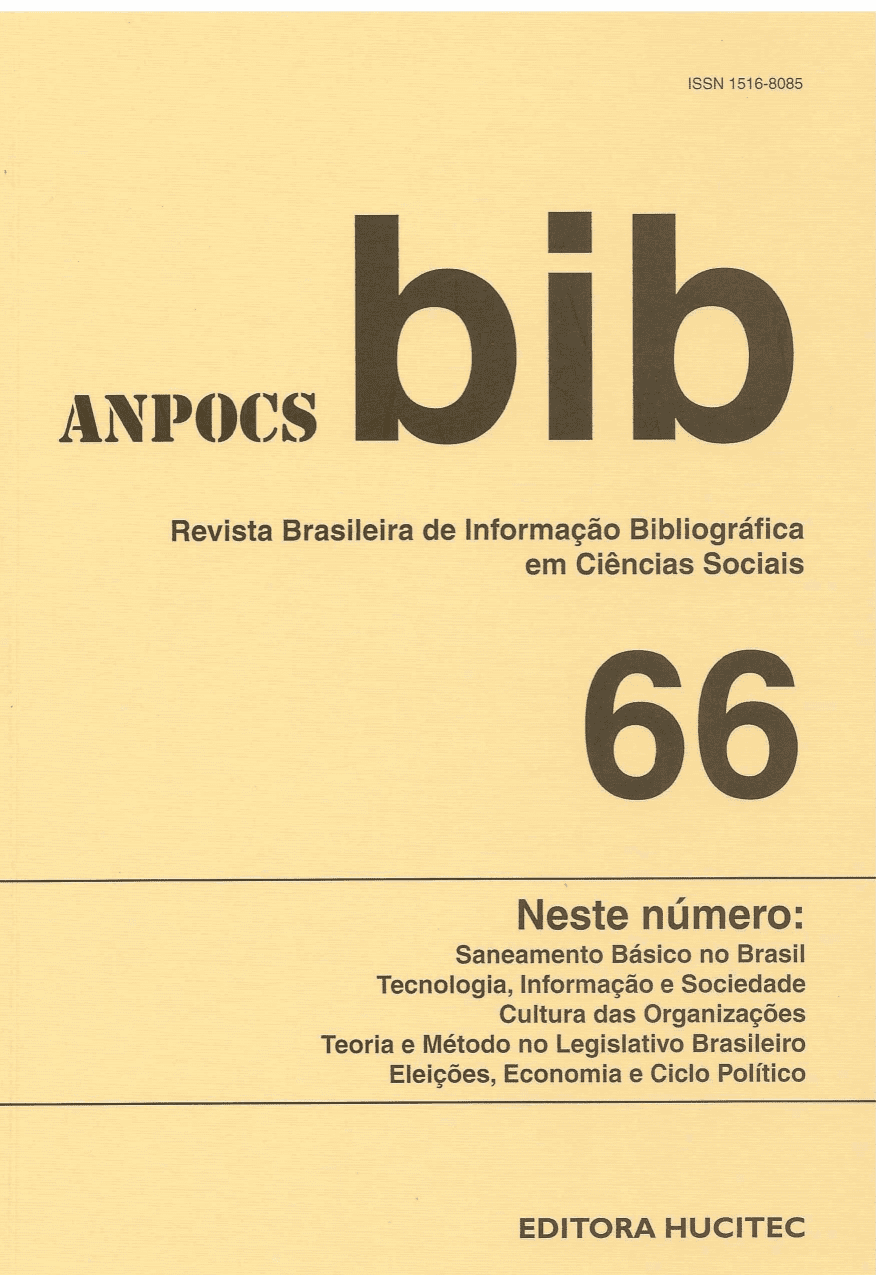Culture des organisations
dominant focusing, international tendencies, and new analytical proposals
Keywords:
Organizational culture, Organizational symbolism, The sociology of organizations, ManagerialismAbstract
Both culture and organizational symbolism represent nowadays a solid field of study marked by multiple disciplinary contributions and by several theoretical agendas. Having analyzed the diversity of studies produced in the last few decades in the international level, we have identified two competing distinct theoretical studies on approaching organizational culture: the integrator movement, as a hegemonic referential, and, as a countercurrent, the critical movement. If, on the one hand some more managing and integrating perspectives support that integrating cultures will favor the building of excellence and organizational competitiveness, on the other hand critical and reasoning perspectives will invest in the study of processes of construction and cultural manifestation, relativizing its usage as a technique in service of productivity. The central objective of this article consists in presenting a theoretical-empirical model to analyze cultural and symbolic dimensions of organizations that will allow apprehending the current processes of ongoing changes in labor organizations.Downloads
References
ALLAIRE, Yvan; FIRSIROTU, Mihaela E. (1984), “Theories of organizational culture”. Organizations Studies, V (3): 193-226.
ALVESSON, M ats (2002), Under standing organizational culture. London, Sage Publications.
BATES, Richard J. (1987), “Corporate culture, schooling, and educational adm inistration”. Educational Administration Quarterly, 2 3 ,4 :7 9 -1 1 5 .
BERGER, Peter; LUCKMANN, Thomas. (1990), A construção social da realidade. Petrópolis, Vozes.
BUSH, Tony (1986), Theories o f educational management. London, H arper & Row, Publishers.
DEAL, Terence; KENNEDY, Allan A. (1988 [1982]), Corporate cultures. T he rites and rituals of corporate life. London, Penguin Books.
FELDMAN, M artha S. (1991), “The meaning o f ambiguity: learning from stories and metaphors”, in Peter J. Frost etal. (eds.), Reframing organizational culture, London, Sage Publications, pp. 145-56.
FROST, Peter J. etal. (eds.) (1991), Reframing organizational culture. London, Sage Publications.
KILLMANN, Ralph H . etal. (1985), Gaining control o f the corporate culture. London, Jossey-Bass Publishers.
GREGORY, Kathleen, L. (1983), “Native-view paradigms: multiple cultures and cultures conflicts in organizations”. Administrative Science Quarterly, 28: 359-76.
LIMA, Licínio C. (1992), A escola como organização e a participação na organização escolar. Um estudo da escola secundária em Portugal (1974-1988). Braga, Universidade do M inho.
LOUIS, Meryl R. (1985), “An investigator’s guide to workplace culture”, in Peter J. Frost et al. (eds.), Organizational culture, London, Sage Publications, pp. 73-93-
MARTIN, Joanne (1992), Cultures in organizations. Three perspectives. New York, Oxford, Oxford University Press, London, Sage Publications.
_____ • (2002), Organizational culture. Mapping the terrain. London, Sage Publications.
MARTIN, Joanne; MEYERSON, Debra (1988), “Organizational culture and the denial, channeling and acknowledgement o f ambiguity”, in L. R. Pondy; R. J. Boland Jr.; H . Thom as (eds.), Managing ambiguity and change, New York, John Wiley, pp. 93-125.
MARTIN, Joanne et al. (1983), “The uniqueness paradox in organizational stories”, in Administrative Science Quarterly, 28:438-53.
_____ • (1985), “Founders and the elusiveness o f a cultural legacy”, in Peter J. Frost et al. (eds.), Organizational culture, London, Sage Publications, pp. 99-124.
MEYERSON, Debra (1991), “‘Normal’ ambiguity? A glimpse o f an occupational culture”, in Peter J. Frost etal. (eds.), Reframing organizational culture, London, Sage Publications, pp. 131-44.
MEYERSON, Debra; MARTIN, Joanne (1987), “Cultural change: an integration ofthree different views”. Journal o f Management Studies, 24: 623-47.
O U C H I, William G. (1986), TeoriaZ. Como as empresaspodem enfrentar o desafio japonês. São Paulo, Nobel.
PETERS, Thomas J.; WATERMAN, Robert H . (1987), Na senda da excelência. Lisboa, Publicações Dom Quixote.
PETTIGREW , A. (1979), “O n studying organizational culture”. Administrative Science Quarterly, 24: 570-81.
ROSEN, Michael (1991), “Breakfast at Spiro’s: dramaturgy and dominance”, in Peter J. Frost etal. (eds.), Refaming organizational culture, London, Sage Publications, pp. 77-89.
SAINSAULIEU, Renaud (1987), Sociologie de l ’organizacion et de I’entreprise. Paris, Presses de la Fondation Nationale des Sciences Politiques et Dalloz.
SCHEIN, Edgar H . (1985), Organizational culture and leadership. São Francisco, Jossey-Bass Publishers.
_____ • (1991), “T he role o f the founder in the creation o f organizational culture”, in Peter J. Frost etal. (eds.), Reframing organizational culture, London, Sage Publications, pp. 14-25.
SM IR CICH, Linda. (1983a), “Concepts o f culture and organizational analysis”. Administrative Science Quarterly, 28: 339-58.
_____ • (1983b), “Studying organizations as cultures”, in Gareth M organ (ed.), Beyond method: social research strategies, Beverly Hills, CA, Sage Publications, pp. 160-72.
SPARKES, Andrew C.; BLO O M ER, M artin (1993), “Teaching cultures and school-based management: towards a collaborative reconstruction”, in John Smyth (ed.), A socially critical view o f the self management school, London, The Palmer Press, pp. 171-89.
TORRES, Leonor L. (1997), Cultura organizacional escolar: Representações das professores numa escola portuguesa. Oeiras, Celta Editora.
_____ . (2001), “A cultura organizacional na (re)conceptualização da formação em contextos organizacionais”. Cadernos de Ciências Sociais, 21-22:119-50.
_____ . (2004), Cultura organizacional em contexto educativo. Sedimentos culturais e processos de construção do simbólico numa escola secundária. Braga, CIED/Universidade do Minho.
VANMAANEN, John (1991), “T he smile factory: work at Disneyland”, in Peter J. Frost et al. (eds.), Refaming organizational culture, London, Sage Publications, pp. 58-76.
WEICK, Karl (1991), “T he vulnerable system: an analysis o f the tenerife air disaster”, in Peter J. Frost etal. (eds.), Reframing organizational culture, London, Sage Publications, pp. 117-30.





